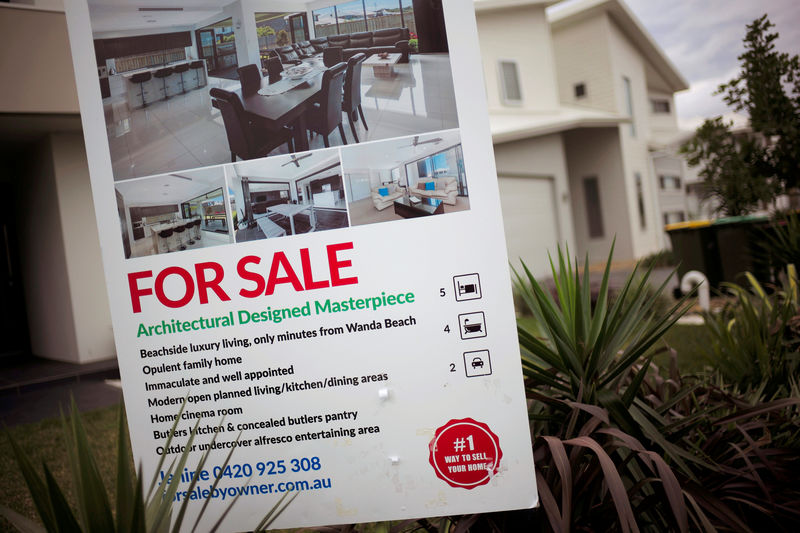SYDNEY, Aug 1 (Reuters) - Home prices in Australia's major cities rose strongly in July led by a surge in Melbourne, putting a question mark over regulators' attempts to cool the market through tighter rules on leveraged property investors.
Property consultant CoreLogic said its index of home prices for the combined capital cities climbed 1.5 percent in July, from June when they rose 0.8 percent.
Annual growth in prices accelerated to 10.5 percent, from 9.6 percent, and back toward the peak of 12.9 percent reached early in the year.
Melbourne led the pack with an outsized increase of 3.1 percent in July alone, which lifted annual price growth in the city to a blistering 15.9 percent.
Sydney prices rose 1.4 percent in the month, and 12.4 percent for the year. Markets were much more mixed elsewhere with prices actually falling in Brisbane, Darwin and Perth.
"Melbourne appears to be benefiting from consistently high population growth which is creating strong demand for housing, as well as consistently high jobs growth and more affordable housing options relative to Sydney," said CoreLogic head of research Tim Lawless.
Lawless said there was some hint of cooling in the quarterly pace of price growth, which slowed to 2.2 percent at the end of July from a top of 3.6 percent back in February.
Seeking to temper the market, the country's main bank watchdog has tightened standards on investment and interest-only loans and banks have followed by raising rates on some mortgage products.
A moderation is much desired by the Reserve Bank of Australia (RBA) which is concerned that debt-fuelled speculation in property could ultimately hurt both consumers and banks.
The central bank holds its August policy meeting on Tuesday and is certain to keep rates steady again, in part because any further easing might only encourage more borrowing by already heavily indebted households.
The inexorable price rise in the major cities has taken homes out of the reach of many first-time buyers and become a political hot potato.
The conservative government of Malcolm Turnbull has blamed a lack of supply for the problem, while the opposition Labor Party has pointed the finger at favourable tax treatment for property investment.
